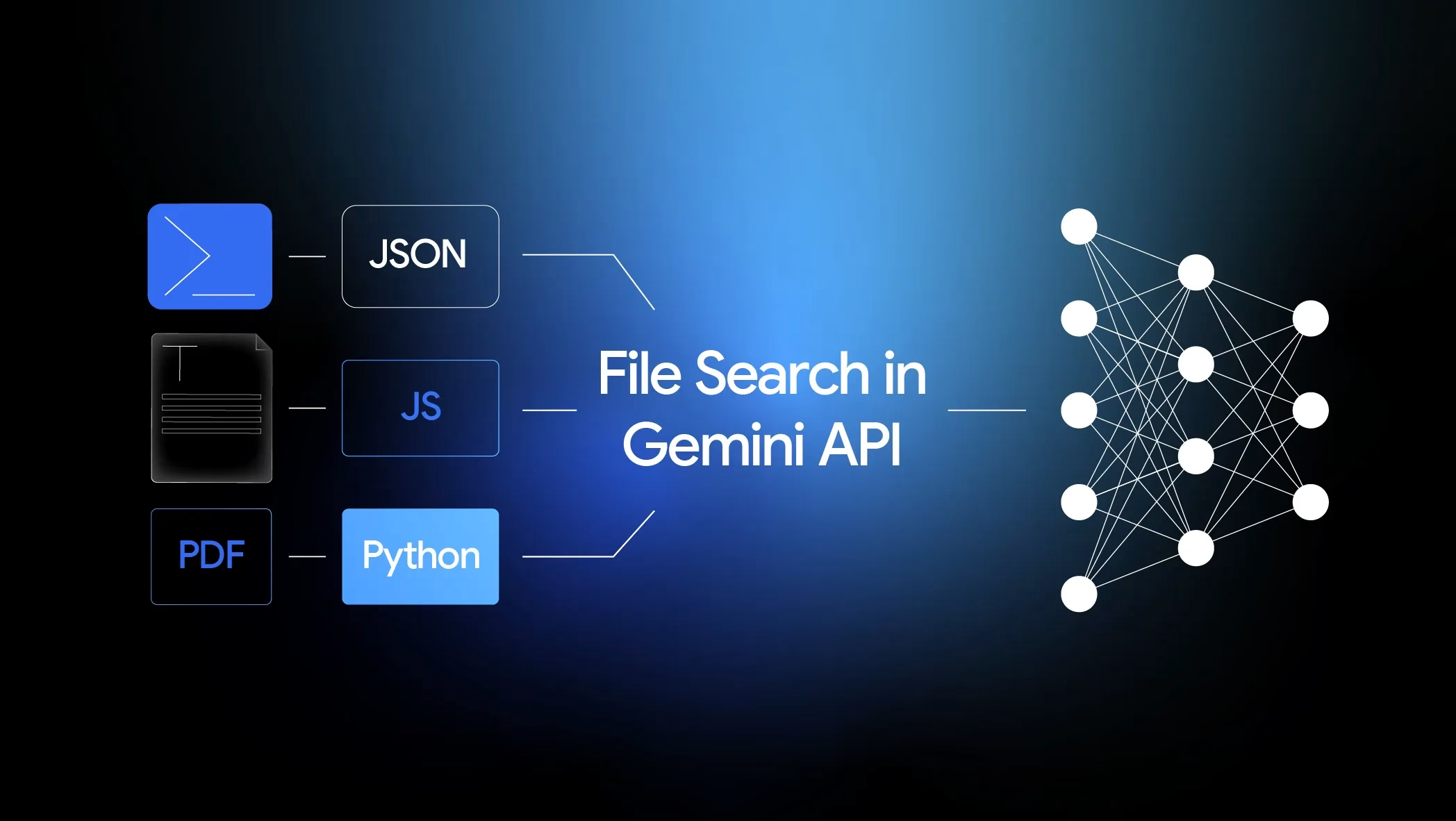Google Unveils File Search Tool for Gemini API, Democratizing Managed RAG for Developers
Core Functionality and Technical Specifications
generateContent API workflows. It supports a broad range of file types, including PDF, DOCX, TXT, JSON, and several common programming language formats.A key feature is its automatic inclusion of citations in responses, which specifies the exact document sections used. This enhances the verifiability and trustworthiness of AI-generated answers. The tool leverages the latest Gemini Embedding model for its vector search capabilities, enabling semantic understanding of context and meaning rather than relying solely on keywords.
Simplified Developer Experience and Cost-Effectiveness
Google designed this tool to simplify the developer experience by automating crucial RAG processes such as optimal chunking, embedding generation, and dynamic context injection. By doing so, developers can focus more on building their applications.
gemini-embedding-001 model. This structure significantly lowers the barrier to entry, especially for smaller teams and startups.Official Statements and Industry Reception
Google's official statement from The Keyword Blog highlights the tool's purpose: "Today, we’re launching the File Search Tool, a fully managed RAG system built directly into the Gemini API that abstracts away the retrieval pipeline so you can focus on building. File Search provides a simple, integrated and scalable way to ground Gemini with your data, delivering responses that are more accurate, relevant and verifiable."
Early developer feedback has praised the tool's ease of integration and its cost-effective approach, emphasizing how the managed system reduces the overhead typically associated with building custom RAG solutions. Industry analysts view this launch as a strategic move to democratize enterprise AI, extending advanced RAG capabilities to a wider range of developers who may not possess the resources to manage complex retrieval pipelines independently.
Impact on Enterprise AI Development
Before the introduction of the File Search Tool, developers often had to build and maintain their own RAG pipelines, which involved considerable engineering effort for tasks like file storage, chunking, and embedding. With the new managed system, Google now handles these complexities, simplifying the development process. This is anticipated to accelerate the adoption of Gemini for various enterprise applications, including knowledge management, customer support, and internal documentation, in 2025 and beyond.
